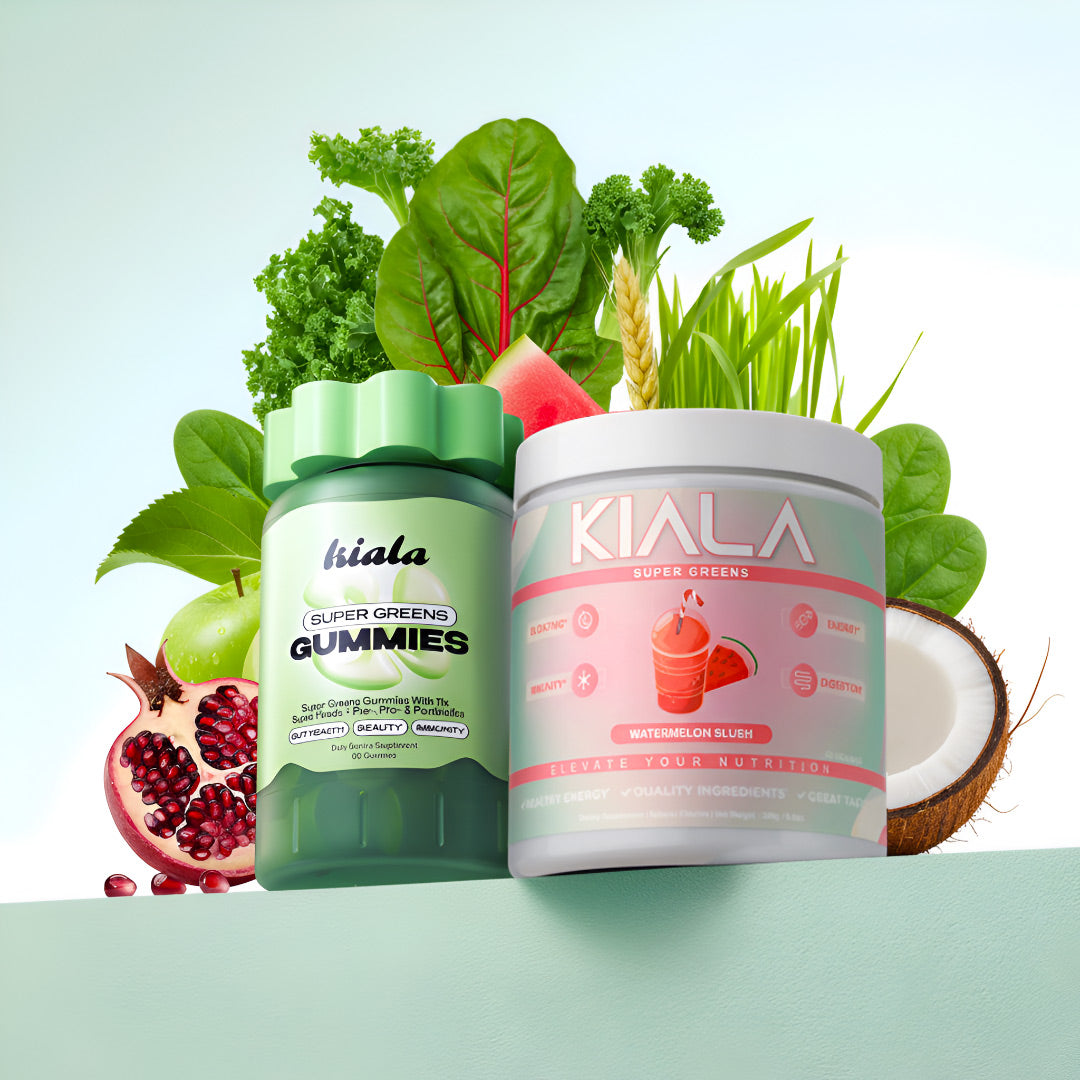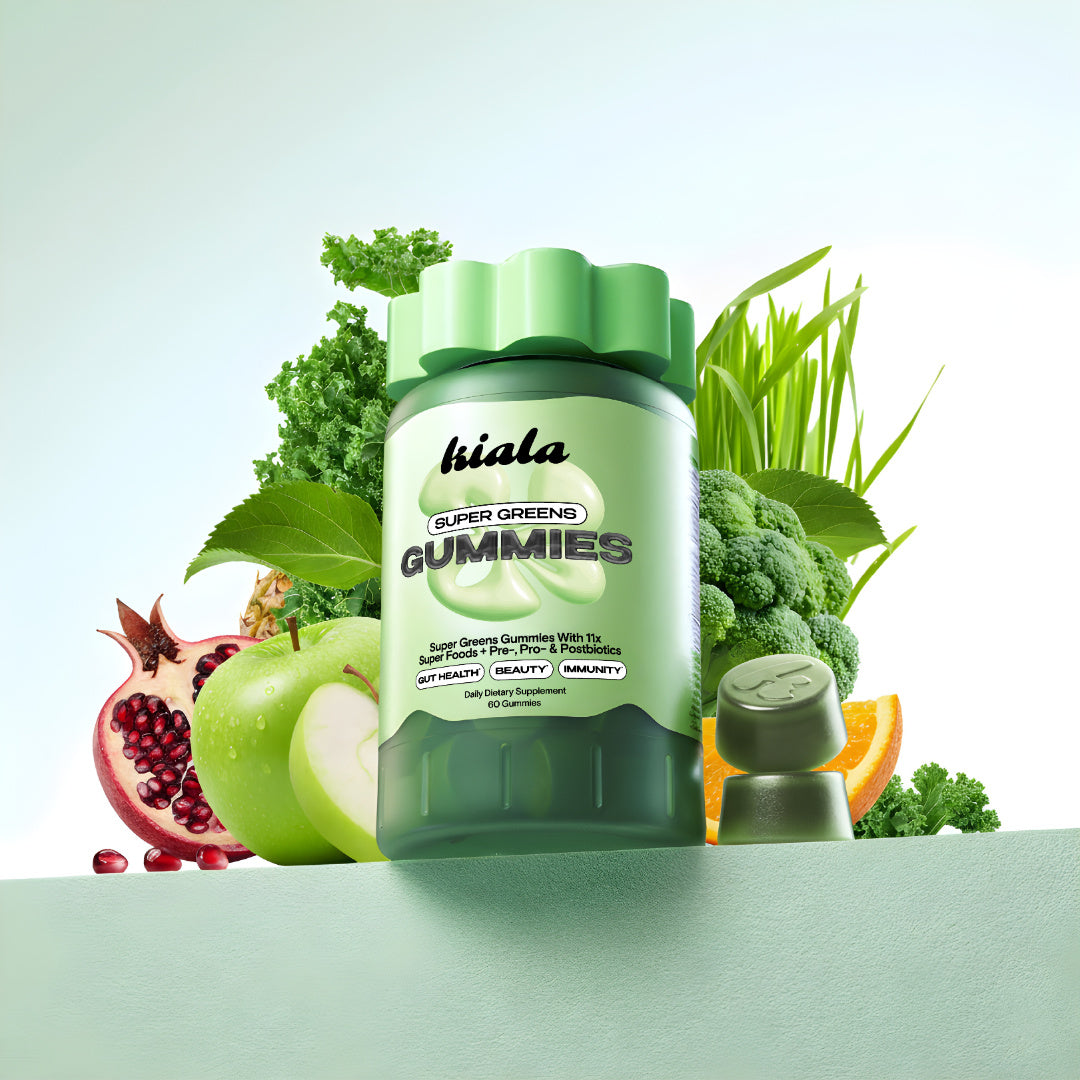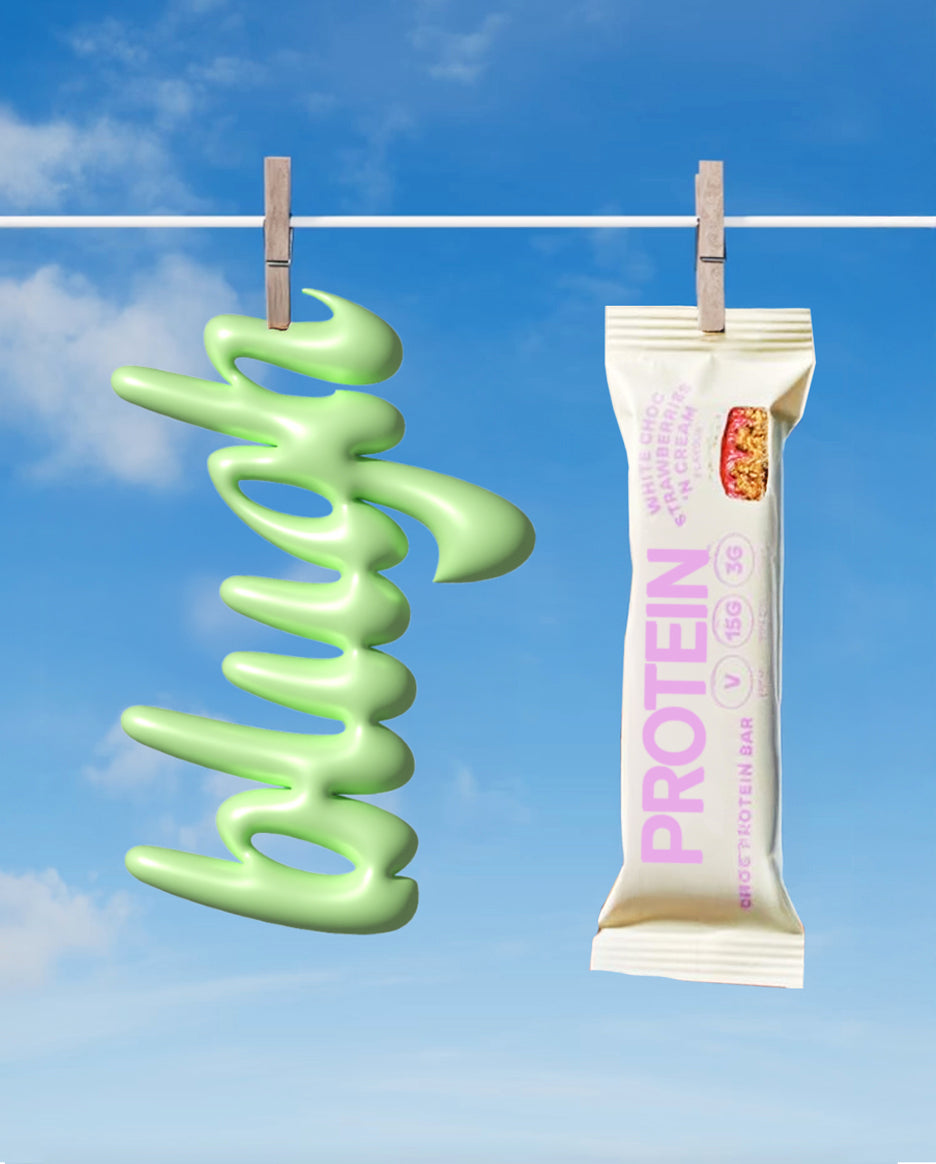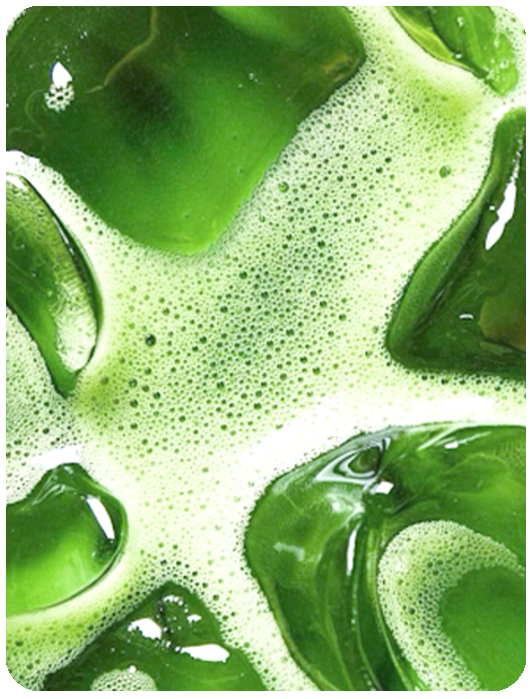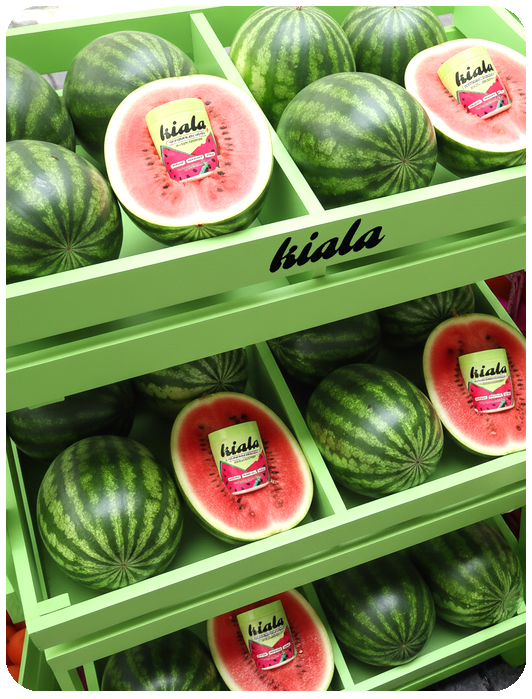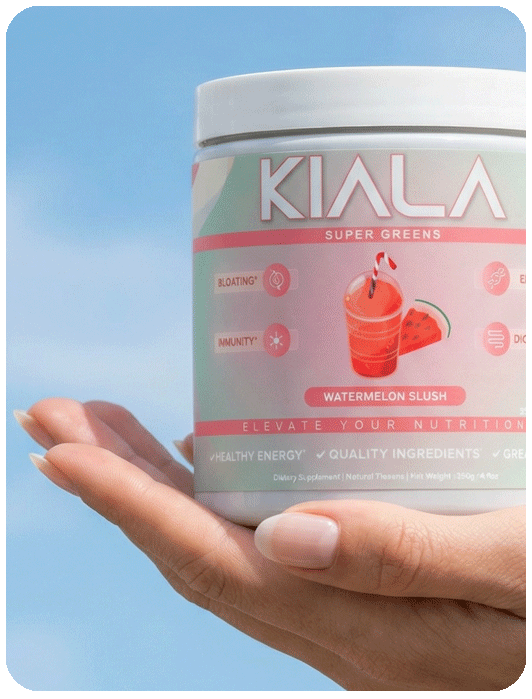5 'Healthy' Foods Making You Bloated (And the One Thing That Actually Helps)
You're doing everything "right"—eating your vegetables, choosing whole grains, drinking kombucha like it's going out of style. Yet every afternoon, you look like you're smuggling a basketball under your shirt. What gives? Sometimes the foods we think are doing us favors are actually the culprits behind that uncomfortable bloated feeling.
Let's expose the surprising "health foods" that might be sabotaging your stomach and discover what actually provides digestive comfort.
The Health Halo Effect
Just because something is marketed as healthy doesn't mean it agrees with your digestive system. Many foods with excellent nutritional profiles can cause digestive distress in sensitive individuals—and that's more of us than you might think.
Dr. Robynne Chutkan, gastroenterologist and digestive health expert, explains: "The healthiest food is the one your body can digest comfortably. Nutritional value means nothing if it's causing inflammation and digestive distress."
The Bloating Culprit #1: Kombucha
Yes, the darling of gut health influencers might be the reason you're uncomfortable.
The Problem: Kombucha contains live bacteria and yeast (SCOBY) that can cause gas and bloating, especially in people with sensitive digestive systems or existing gut imbalances. The fermentation byproducts can trigger digestive distress in some individuals.
The Sugar Factor: Despite health claims, many commercial kombuchas contain significant amounts of residual sugar and alcohol from fermentation, which can feed harmful bacteria and cause bloating.
The Individual Response: While some people thrive on fermented foods, others experience increased gas, bloating, and digestive discomfort. If you're one of them, it doesn't mean you're doing anything wrong.
The Bloating Culprit #2: Raw Cruciferous Vegetables
Kale, broccoli, and cauliflower are nutritional powerhouses—but they're also digestive challenges for many people.
The Fiber Overload: Raw cruciferous vegetables contain tough, insoluble fiber that can be difficult to break down, leading to gas production as gut bacteria work overtime to ferment these complex carbohydrates.
The Goitrogen Factor: These vegetables contain compounds called goitrogens that can interfere with thyroid function when consumed in large quantities, potentially affecting metabolism and digestion.
The Solution Insight: This is where processed supergreens start making sense. The gentle processing breaks down tough fiber structures while preserving nutrients, making them easier to digest than their raw counterparts.
The Bloating Culprit #3: Protein Bars
The convenient grab-and-go option that's supposed to fuel your day might be fueling your bloating instead.
The Fiber Bomb: Many protein bars contain 10-15 grams of added fiber to meet health food expectations. Suddenly introducing this much fiber can overwhelm your digestive system, especially if you're not accustomed to high-fiber intake.
The Sugar Alcohol Problem: Ingredients like sorbitol, mannitol, and xylitol are poorly absorbed and ferment in the colon, producing gas and causing bloating. These artificial sweeteners are common in "healthy" protein bars.
The Artificial Everything: Protein bars often contain multiple artificial ingredients, thickeners, and preservatives that can trigger digestive sensitivity in some people.
The Bloating Culprit #4: Beans and Legumes
They're protein-packed and environmentally friendly, but they're also notorious for causing gas.
The Oligosaccharide Issue: Beans contain complex sugars called oligosaccharides that humans can't digest. These sugars reach the colon intact, where bacteria ferment them, producing gas as a byproduct.
The Lectin Factor: Many legumes contain lectins, proteins that can cause digestive irritation in sensitive individuals, leading to bloating and discomfort.
The Preparation Problem: Improperly prepared beans (not soaked or cooked adequately) are more likely to cause digestive issues than properly prepared ones.
The Bloating Culprit #5: High-FODMAP Fruits
Even nature's candy can cause digestive distress when you're sensitive to certain carbohydrates.
The Fructose Problem: Apples, pears, and stone fruits contain high levels of fructose and sorbitol, which can be poorly absorbed and cause fermentation in sensitive individuals.
The Fiber + Sugar Combination: The combination of high fiber and natural sugars can create a perfect storm for gas production, especially when consumed in large quantities or on an empty stomach.
The Individual Tolerance: FODMAP sensitivity varies widely among individuals. What causes severe bloating in one person might be perfectly fine for another.
The Real Solution: Gentle, Comprehensive Nutrition
Instead of avoiding all potentially problematic foods, consider a smarter approach to nutrition that provides benefits without digestive drama.
The Processing Advantage: Quality supergreens undergo gentle processing that breaks down tough plant fibers while preserving nutrients. This makes them more digestible than raw vegetables while providing superior nutritional density.
The Synergistic Approach: Rather than isolated problematic foods, comprehensive formulations combine digestive-friendly ingredients. Coconut water powder provides natural electrolytes that support hydration and digestive function, while antioxidants from berries and green tea extract provide benefits without harsh fiber.
The Gentle Delivery System: Supergreens containing spirulina, wheatgrass, and organic fruits deliver nutrients in forms that are easier for your digestive system to process than whole raw foods.
The Digestive Comfort Formula
Anti-Inflammatory Support: Ingredients like turmeric and green tea extract provide anti-inflammatory compounds that can actually soothe digestive irritation rather than causing it.
Natural Enzyme Support: Quality supergreens often include ingredients that naturally support digestive processes, helping your body break down and absorb nutrients more efficiently.
Electrolyte Balance: Proper hydration and electrolyte balance are crucial for comfortable digestion. Natural electrolytes from coconut water powder support this balance without artificial additives.
The Timing Factor
Morning Optimization: Starting your day with gentle, comprehensive nutrition sets your digestive system up for success rather than overwhelming it with problematic foods first thing in the morning.
Consistent Support: With over 1 million women incorporating digestive-friendly supergreens into their daily routines, it's clear that consistent, gentle nutrition can provide comprehensive benefits without digestive drama.
Quality Over Complexity: Rather than trying to consume massive amounts of potentially problematic whole foods, comprehensive supergreens provide concentrated nutrition in digestive-friendly forms.
The Flavor Solution
One of the biggest barriers to digestive wellness is that many gut-friendly options taste terrible. Quality supergreens in delicious flavors like Mixed Berry, Tropical Splash, and Watermelon Slush prove that digestive comfort doesn't require taste sacrifice.
The Compliance Connection: If something tastes good, you're more likely to stick with it consistently. Consistent gentle nutrition is more effective than sporadic consumption of foods that cause digestive distress.
The Enjoyment Factor: When your healthy choice is something you actually look forward to drinking, wellness becomes sustainable rather than a daily struggle.
The Individual Approach
Listen to Your Body: Just because a food is "healthy" doesn't mean it's healthy for you. Pay attention to how different foods make you feel rather than following generic healthy eating advice.
The Elimination Strategy: If you suspect certain healthy foods are causing bloating, try eliminating them for 2-3 weeks and see how you feel. Sometimes the most virtuous foods are the ones causing problems.
The Gradual Reintroduction: If you want to include potentially problematic foods, introduce them gradually and in small amounts to allow your digestive system to adapt.
Beyond the Band-Aid
Address the Root Cause: Instead of just avoiding problematic foods, consider why your digestive system is sensitive. Stress, poor sleep, and nutritional deficiencies can all contribute to digestive sensitivity.
The Comprehensive Approach: Supporting overall health with comprehensive nutrition can actually improve digestive tolerance over time. When your body has adequate nutrients, it functions more efficiently across all systems.
The Long-Term View: Building digestive resilience takes time. Consistent support with gentle, nutrient-dense options can gradually improve your tolerance for a wider variety of foods.
The Practical Reality
Meal Planning Simplification: When you know certain healthy foods cause problems, meal planning becomes more complex. Having a reliable, digestive-friendly nutrition source simplifies daily choices.
The Social Factor: It's easier to manage social eating situations when you have a solid nutritional foundation that doesn't cause digestive drama.
The Energy Connection: When you're not dealing with bloating and digestive discomfort, you have more energy for the things that actually matter in your life.
The Bottom Line
Being bloated by healthy foods isn't a personal failing—it's a sign that your body is communicating its needs. Sometimes the most nutritious choice for your body isn't the one that looks best on Instagram.
The goal isn't to eat perfectly according to someone else's definition of healthy. It's to nourish your body in ways that make you feel energized, comfortable, and confident.
The One Thing That Actually Helps: Comprehensive, gentle nutrition that provides broad-spectrum nutrients without digestive drama. When you support your body with easily digestible, nutrient-dense options, you can enjoy the benefits of healthy eating without the uncomfortable side effects.
Your digestive comfort matters just as much as your nutritional intake. Choose foods that work with your body, not against it, and remember that the healthiest diet is the one that makes you feel your best.
Sources:
-
Chutkan, R. (2014). Gutbliss: A 10-Day Plan to Ban Bloat, Flush Toxins, and Dump Your Digestive Baggage. Avery.
-
Gibson, P. R., & Shepherd, S. J. (2010). Evidence-based dietary management of functional gastrointestinal symptoms: The FODMAP approach. Journal of Gastroenterology and Hepatology, 25(2), 252-258.
-
Biesiekierski, J. R. (2017). What is gluten? Journal of Gastroenterology and Hepatology, 32(S1), 78-81.
-
Marsh, A., et al. (2014). Sequence-based analysis of the bacterial and fungal compositions of multiple kombucha (tea fungus) samples. Food Microbiology, 38, 171-178.
-
Muir, J. G., et al. (2009). Fructan and free fructose content of common Australian vegetables and fruit. Journal of the American Dietetic Association, 109(2), 298-305.
*Tired of playing digestive Russian roulette with healthy foods? Discover gentle, comprehensive nutrition that provides superior benefits without the bloating drama. Join thousands of women who've found that the right nutrition doesn't have to hurt to h
Read more

Nutrient Timing: Does When You Take Your Greens Actually Matter? You've mastered what to eat, but now you're spiraling down the rabbit hole of when to eat it. Should you take your supergreens on an...

Supplement Shaming is So 2023: Why Smart Women Don't Apologize for Optimization Picture this: You're at brunch, casually mentioning your morning routine includes a greens powder, and suddenly Karen...
